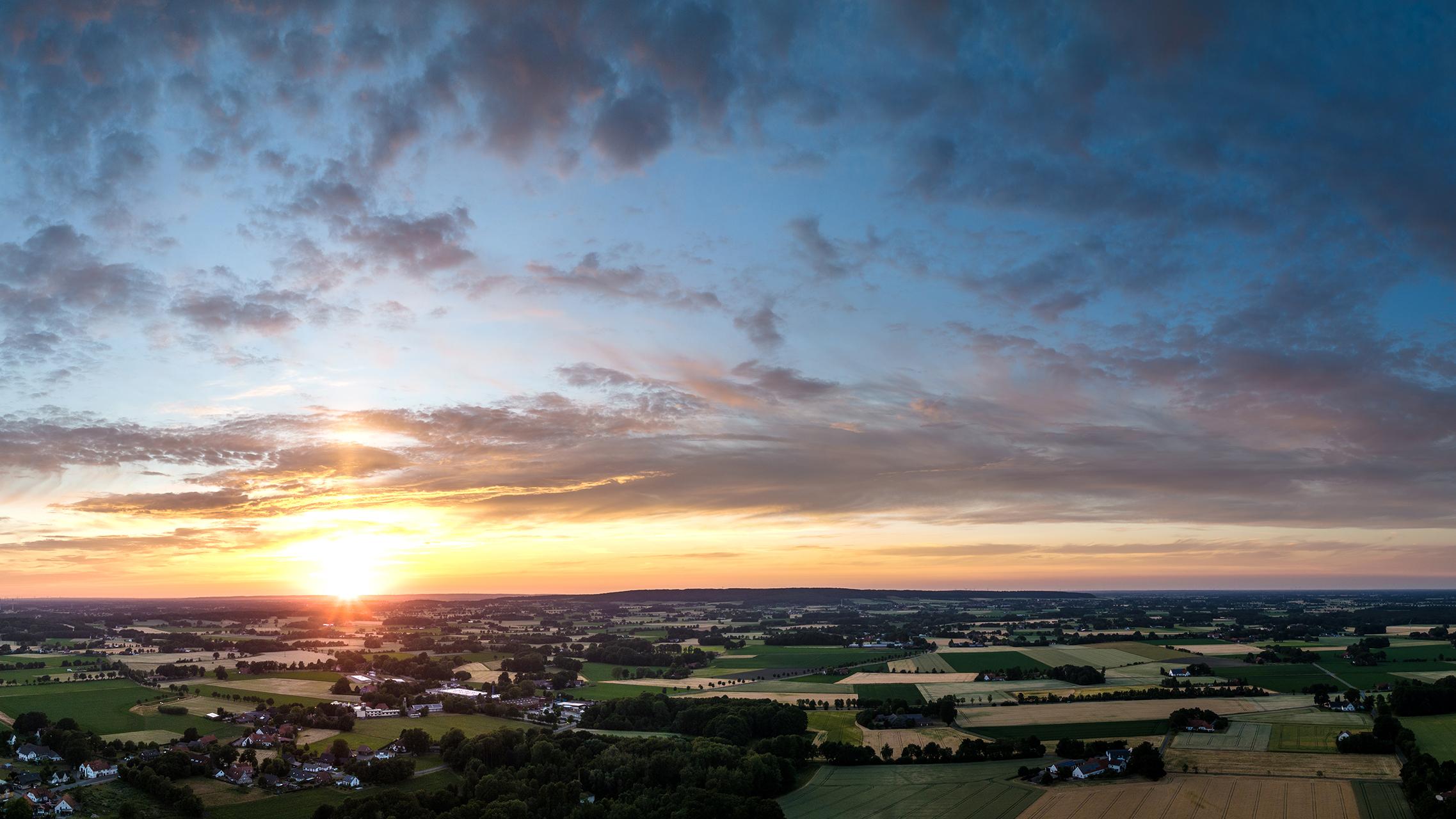


Stemwede
Wasserwerk Destel
The municipality of Stemwede, consisting of 13 localities with a total area of approx. 167 km², operates two waterworks with independent water supply networks. The total pipe network length is approx. 390 km. It supplies 4,050 households with drinking water. The villages of Arrenkamp, Dielingen, Drohne, Haldem, Wehdem, Westrup, Oppendorf and Oppenwehe receive their drinking water from the Dielingen waterworks and the villages of Destel, Levern, Niedermehnen, Sundern and Twiehausen from the Destel waterworks.
The Destel waterworks was planned in 1968. Construction of the waterworks and the distribution network began in the early 1970s. Initially, three extraction wells were put into operation. Today, drinking water is pumped from four wells. Three of the four production wells are located in an area belonging to the town of Pr. Oldendorf and have an average depth of 14.5 meters. The raw water has an iron content of up to 11 mg/l and is relatively hard at 23.7 °dH.
At the waterworks, the raw water is run through a filter system in which iron removal, manganese removal and deacidification take place. The nitrate content of the water is 8 mg/l (limit value according to the Drinking Water Ordinance is 50 mg/l). The drinking water treated in this way is then fed into the approx. 160 km long supply network (Destel) via an intermediate tank and a secondary filter.
There is also an elevated tank in Stemweder Berg with a volume of 900 m³, from which the drinking water is fed into the supply network at a constant pressure of approx. 6 bar. At the height of summer, the Destel waterworks pumps up to 1,500 m³ (1,500,000 liters) of drinking water per day and approx. 355,000 m³ per year. Continuous monitoring ensures that the high quality of the drinking water is maintained.